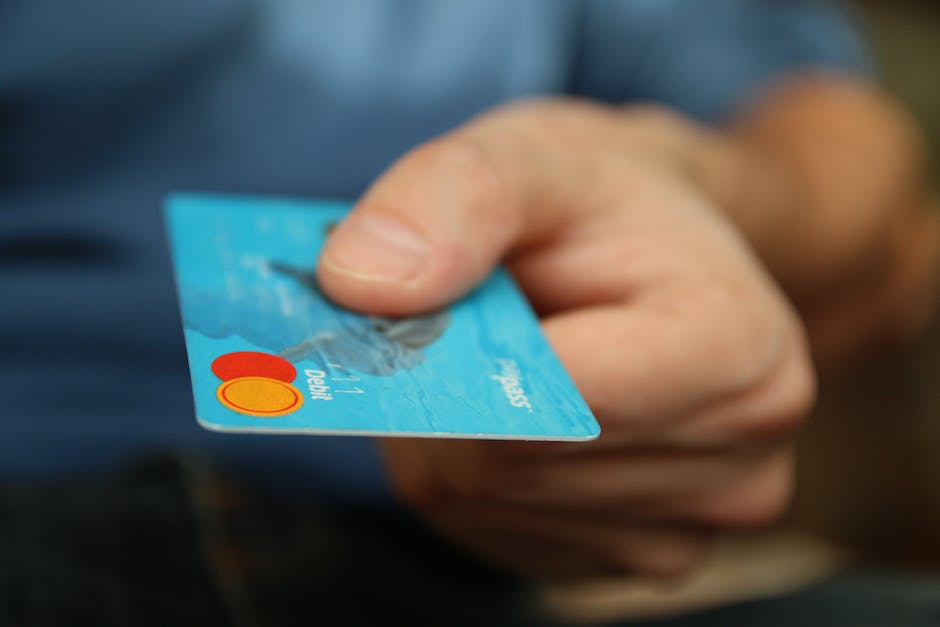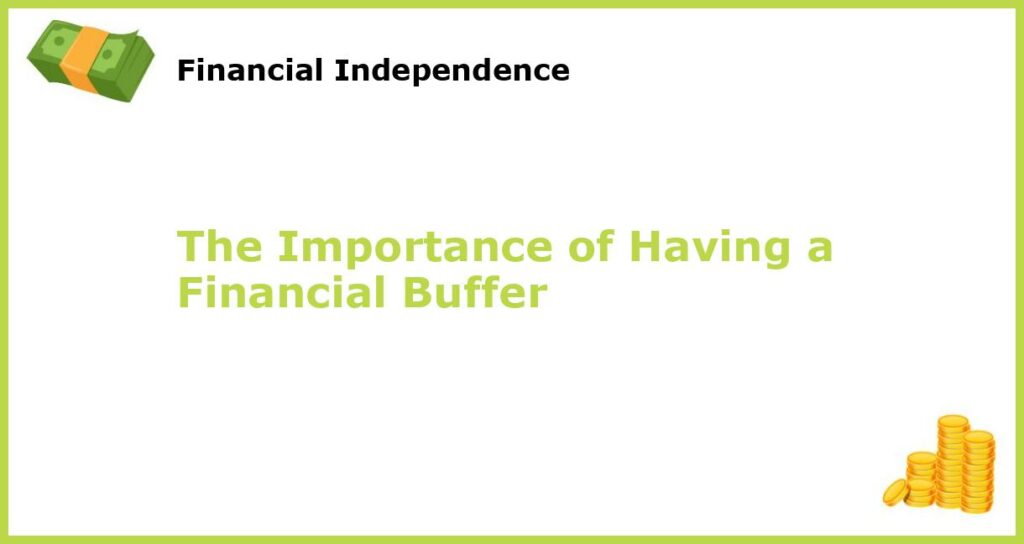Money can be a source of stress in many people’s lives. With unexpected expenses such as car repairs, medical bills, or job loss, many people turn to credit, which often results in high-interest debt. A financial buffer can be a helpful tool to avoid this. A financial buffer is the money set aside to handle unexpected expenses or emergencies. It is an essential part of a healthy financial plan, and building one is crucial to avoid financial stress and potential debt.
The Concept of a Financial Buffer

A financial buffer is also known as an emergency fund. It is a sum of money that is set aside to cover unexpected expenses. This can include medical expenses, accidents, or other unforeseen circumstances that may arise. The purpose of having a buffer is to prevent people from borrowing money that they may not be able to repay. By having a financial buffer, individuals can meet their obligations without experiencing significant financial stress.
Why Do You Need a Financial Buffer?

There are several reasons why having a financial buffer is essential. First and foremost, it protects individuals from financial stress and potential debt from unexpected expenses. A financial buffer ensures that individuals can take care of their obligations without worrying about depleting their savings accounts or accruing high-interest debt. A financial buffer can also provide individuals with financial security, which can help reduce their overall stress levels.
Another reason why having a financial buffer is important is that it can prevent people from making impulsive, costly decisions. Without a buffer, many people may be inclined to use credit cards or tap into their savings accounts when faced with unexpected expenses. This can lead to long-term financial consequences, including high-interest debt and reduced savings. A financial buffer can help avoid this by providing a safety net for unexpected expenses.
How Much Should You Have in Your Financial Buffer?

Experts recommend having three to six months of living expenses as a financial buffer. This amount ensures that individuals can handle unexpected expenses without facing financial difficulty. However, the size of your buffer may vary based on your financial situation and monetary goals. For example, individuals with stable jobs and low monthly expenses may be able to get by with a smaller buffer, while those with more unstable income and higher expenses may need a more substantial buffer. Individuals should consider their unique financial circumstances when determining the size of their buffer.
Financial Buffers for Freelancers

Freelancers and independent contractors often have less predictable income streams than traditional employees. As a result, they may need to have a larger financial buffer. Experts recommend having a buffer that can cover six to twelve months of living expenses. This amount can help cushion the impact of income fluctuations and ensure that freelancers and independent contractors can take care of their obligations without experiencing significant financial stress.
How to Build a Financial Buffer

The first step to building a financial buffer is by setting it as a financial goal. Individuals should determine the size of their buffer and how much they want to contribute to it each month. They can then review their finances and track their spending to determine how much money they can allocate towards building their buffer. It may be helpful to set up automatic deposits into a separate account to make building a buffer easier.
Another way to build a financial buffer is to reduce expenses. By reducing discretionary spending, individuals can free up more money to put towards their buffer. For example, packing lunch instead of eating out or canceling unused subscriptions can help individuals save money faster.
Where to Keep Your Financial Buffer

The location of your financial buffer depends on your financial goals and risk tolerance. Many people choose to keep their buffer in a high-yield savings account, which can provide a higher return than a traditional savings account. Others may choose bonds or market investments for higher returns. Regardless of the location, it’s important to keep the buffer separate from other savings accounts and to use it only for unexpected expenses.
Don’t Confuse Your Financial Buffer with Savings

It’s essential to distinguish between a financial buffer and a savings account. Savings accounts are typically used for planned future expenses, such as a vacation or large purchase. A financial buffer, on the other hand, is designed to cover unexpected expenses that cannot wait. Using savings for unexpected expenses can deplete the account and make it difficult to meet future savings goals or obligations.
How to Use Your Financial Buffer
When unexpected expenses arise, individuals should use their buffer as intended. It’s important to avoid dipping into savings or using credit cards, as these can lead to long-term financial consequences. Once the buffer has been used, individuals should work to build it back up as soon as possible. This can be done by reducing expenses, increasing contributions, or finding new sources of income if necessary.
The Importance of Reviewing Your Financial Buffer
It’s crucial to review your financial buffer periodically. This helps ensure that you have enough set aside and maintain your financial goals. It’s also important to review any changes in your financial situation and adjust your buffer accordingly. For example, if your expenses increase or your income decreases, you may need to increase your buffer to ensure that you can handle unexpected expenses as they arise.
In Conclusion
A financial buffer is a critical part of a healthy financial plan. It ensures that individuals can handle unexpected expenses without facing financial stress or high-interest debt. To build a financial buffer, individuals should set it as a financial goal, track their spending, and consider reducing expenses to allocate more money towards the buffer each month. It’s also essential to review the buffer periodically and make adjustments as necessary. By having a financial buffer, individuals can achieve financial security and peace of mind.







